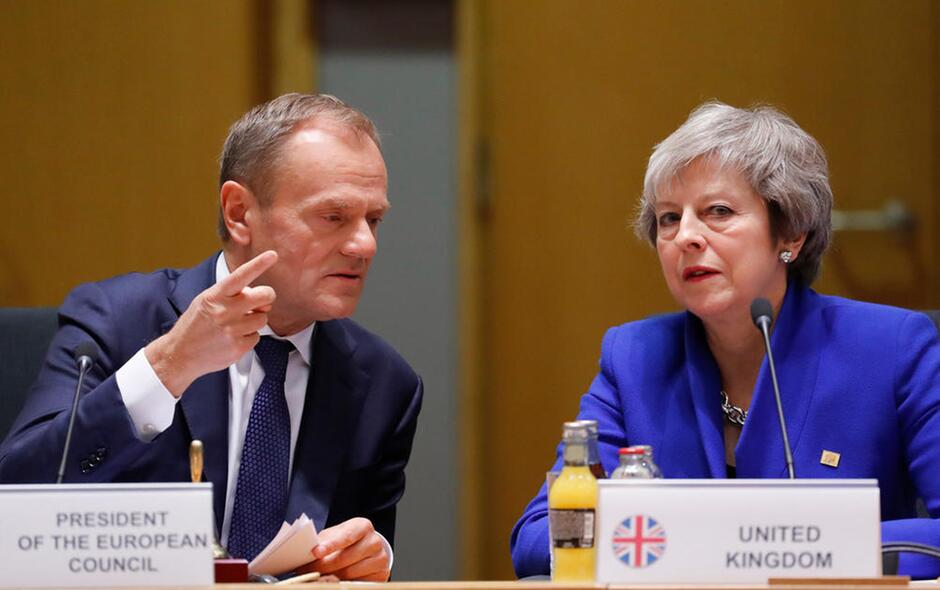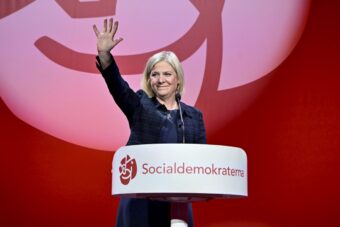
BRUSSELS (AP) — After months of hesitation, stop-and-start negotiations and resignations, Britain and the European Union on Sunday finally sealed an agreement governing the U.K.’s departure from the bloc next year.
British Prime Minister Theresa May, right, and European Council President Donald Tusk attend a round table meeting at an EU summit in Brussels, Sunday, Nov. 25, 2018. European Union leaders are gathering to seal an agreement on Britain’s departure from the bloc next year, the first time a member country will have left the 28-nation bloc. (Olivier Hoslet, Pool Photo via AP)
So much for the easy part. British Prime Minister Theresa May must now sell the deal to her divided Parliament — a huge task considering the intense opposition from pro-Brexit and pro-EU lawmakers alike — to ensure Britain can leave with a minimum of upheaval on March 29.
It’s a hard sell. The agreement leaves Britain outside the EU with no say but still subject to its rules and the obligations of membership at least until the end of 2020, possibly longer. Britons voted to leave in June 2016, largely over concerns about immigration and losing sovereignty to Brussels.
EU leaders were quick to warn that no better offer is available. «I am totally convinced this is the only deal possible,» European Commission President Jean-Claude Juncker said. «Those who think that by rejecting the deal that they would have a better deal will be disappointed the first seconds after the rejection.»
For once, May was in complete agreement. «This is the deal that is on the table,» she said. «It is the best possible deal. It is the only deal.» Acknowledging the vast political and economic consequences of Brexit, May promised lawmakers their say before Christmas and said that it «will be one of the most significant votes that Parliament has held for many years.»
The European Parliament, meanwhile, will be in full campaign mode a few months ahead of the EU elections when Europe’s lawmakers sit to endorse the agreement, probably in February, but perhaps as late as March, according to the assembly’s president, Antonio Tajani.
Still, Tajani said a «large majority» of European parliamentarians support the deal. Many predict it will fail in the British Parliament. No one can be sure whether that would lead to the fall of the government, a new referendum, a postponement of Brexit or a chaotic «no deal» exit for Britain.
But Irish Prime Minister Leo Varadkar said he thought May’s chances of getting the agreement through Parliament were strong. He said British lawmakers would see that «the alternative is a no deal, cliff-edge Brexit, which is something of course that we all want to avoid.»
-Any other deal really only exists in people’s imaginations, he added.
Associated Press writers Gregory Katz in London and Kirsten Grieshaber in Berlin contributed. See the AP’s Brexit coverage at: https://www.apnews.com/Brexit



